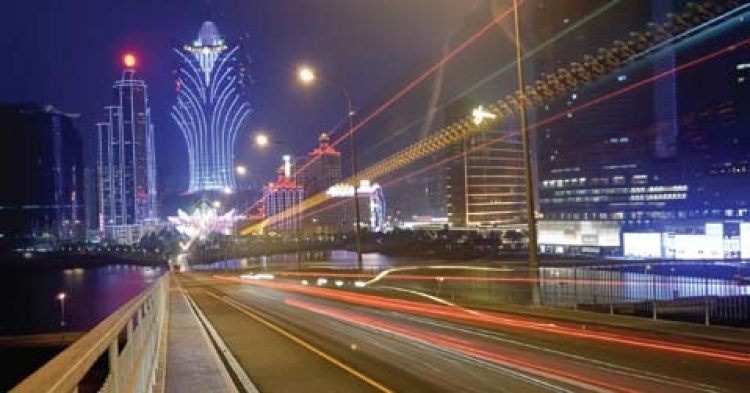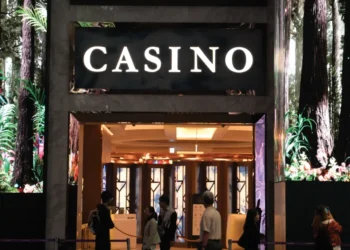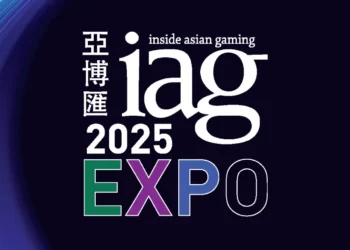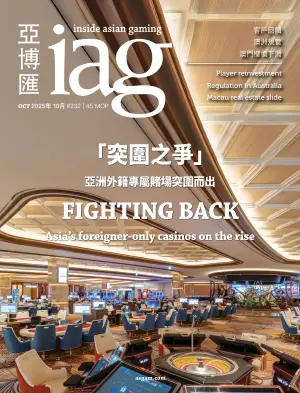Junkets—the worst possible solution, apart from all the others
Most investors probably see Macau operator plays as infrastructure investment opportunities linked to Chinese GDP. It might be better at this stage in China’s economic development to see them as short-cycle plays led specifically by events in the VIP gaming market.
Here’s why. Not only do the VIP junkets currently supply around 72% of Macau’s gross gaming revenue (the 2010 figure), but they also operate on business principals and on occasions with levels of risk appetite that are fundamentally at odds with the business principals and normal risk appetites of the publicly-listed casino operators regulated in Nevada, New York and Hong Kong.
Heavily-regulated international casino operators necessarily use the mainstream financial system for their funding. Lightly-regulated Macau junkets with cross-border operations that are legal in Macau but at best occupy a grey area within China use an informal banking network. Informal or underground banking is nothing new in mainland China, but companies operating in that zone don’t normally team up with Western cross-border investors. They get screened out by the Western investors during the due diligence process.
The process whereby junkets lend money to VIPs for high stakes play and then recover gambling losses from those VIPs is also measured over weeks or even days. That might seem at first sight like a good thing, because it limits the exposure of the junkets and the operators to high roller bad debt. The problem comes when the intense competition for VIPs among the junkets bumps up against the intense competition for revenue market share among the operators.
The larger and higher profile junkets or junket consolidators are generally the most conservative in their lending policies and the most choosy about their VIP customers—but then they can afford to be because they have bigger pools of players and a better agent network scouting for them. The problem is when you get an unholy alliance between a new junket eager for business and an operator playing catch up on market share. That operator may be willing to ‘buy’ business by offering market-leading commission or revenue share rates and the junket newcomer may be willing to supply new players without necessarily doing enough due diligence on them.
Then add to that heady brew a junket sector that relies for its working capital on informal networks of regional business people rather than the regular banking system (which sees the trade as too high risk and too much of a grey area) and you have a recipe for instability. The junkets’ informal banking system can be volatile and capital flight can occur quite easily based on the rumour network within the junket system. If word gets around about a bad debt, investors will pull their capital, making the risk of junket failure more likely. The volumes in junket play are so large that it may only take one or two VIPs to welch on their debts to cause a junket to fail, which in turn can affect a casino operator’s market share of revenue with possible knock-on effects for the share price of the operator.
The IPOs held over the last few years in Hong Kong for some Macau junket operators were in Inside Asian Gaming’s view essentially opportunistic—either to make hay in the extended equities bull market up to September 2008, or to give the junkets some regulatory respectability. Who’s trading their shares now?
At this point, we’re reminded of a joke by Winston Churchill, who remarked in a parliamentary speech: “It has been said that democracy is the worst form of government— except all those other forms that have been tried from time to time.”
The same could be said of the third party junkets in relation to keeping the Macau gaming market growing—they’re the worst possible system, apart from all the others. This analysis is not about bashing the Macau junkets per se. If they didn’t exist the market would have to invent them, or something like them. They perform an important function by absorbing a significant amount of the credit risk associated with players from mainland China, where the currency is not internationally convertible and gambling debts are not recognised by the courts. The junkets also risk their own money (or that of their backers) by paying the casinos up front for the VIP chips used in VIP rolling play.
However, in offsetting credit risk for the operators, they also paradoxically encourage the casino managements to do things they would never dream of doing in their home markets—such as allowing onto their premises and into their gaming rooms high rollers about whom the operators know absolutely nothing or next to nothing. The biggest risk could come not from Chinese high rollers embezzling money from state companies to play in Macau (that was curbed four years ago when China put undercover police onto the gaming floors). The real risk could come from an unwinding of some of the credit lent to private businesses by provincial governments in China as part of the country’s stimulus package following the global financial crisis of 2008.
In June last year, Liu Jiayi, head of China’s National Audit Office, said in a report to the National People’s Congress that borrowing by local governments had created public debt burdens totaling hundreds of billions of renminbi. Some of that money was then reportedly reloaned to friends and business associates of municipal officials without necessarily adhering to the lending criteria applied by the country’s banking system.
Fitch Ratings, a credit rating agency, warned in a report last summer that record municipal loan growth could contribute “to another financial crisis.” Some think this was a case of the rating agency canaries singing too loudly and too often, having been caught out by the Western debt crisis.
But if the Macau casinos don’t actually know their VIP customers and are relying on the junkets to do their due diligence for them, that must inherently carry a lot of risk. At best the relationship between the junkets and casinos in Macau is one of mutual reinforcement in credit decision-making. That looks a bit too much like the cosy relationship between the credit ratings agencies and the securities-packaging banks prior to the financial crisis of 2008. And we know how that ended.



































